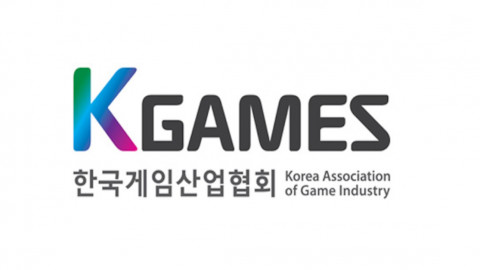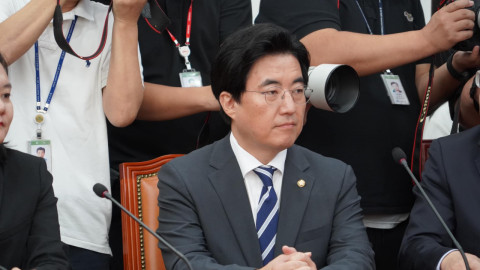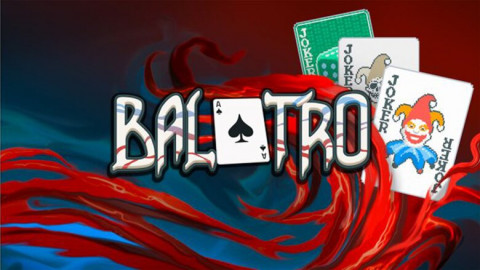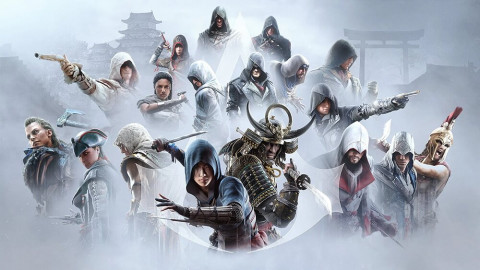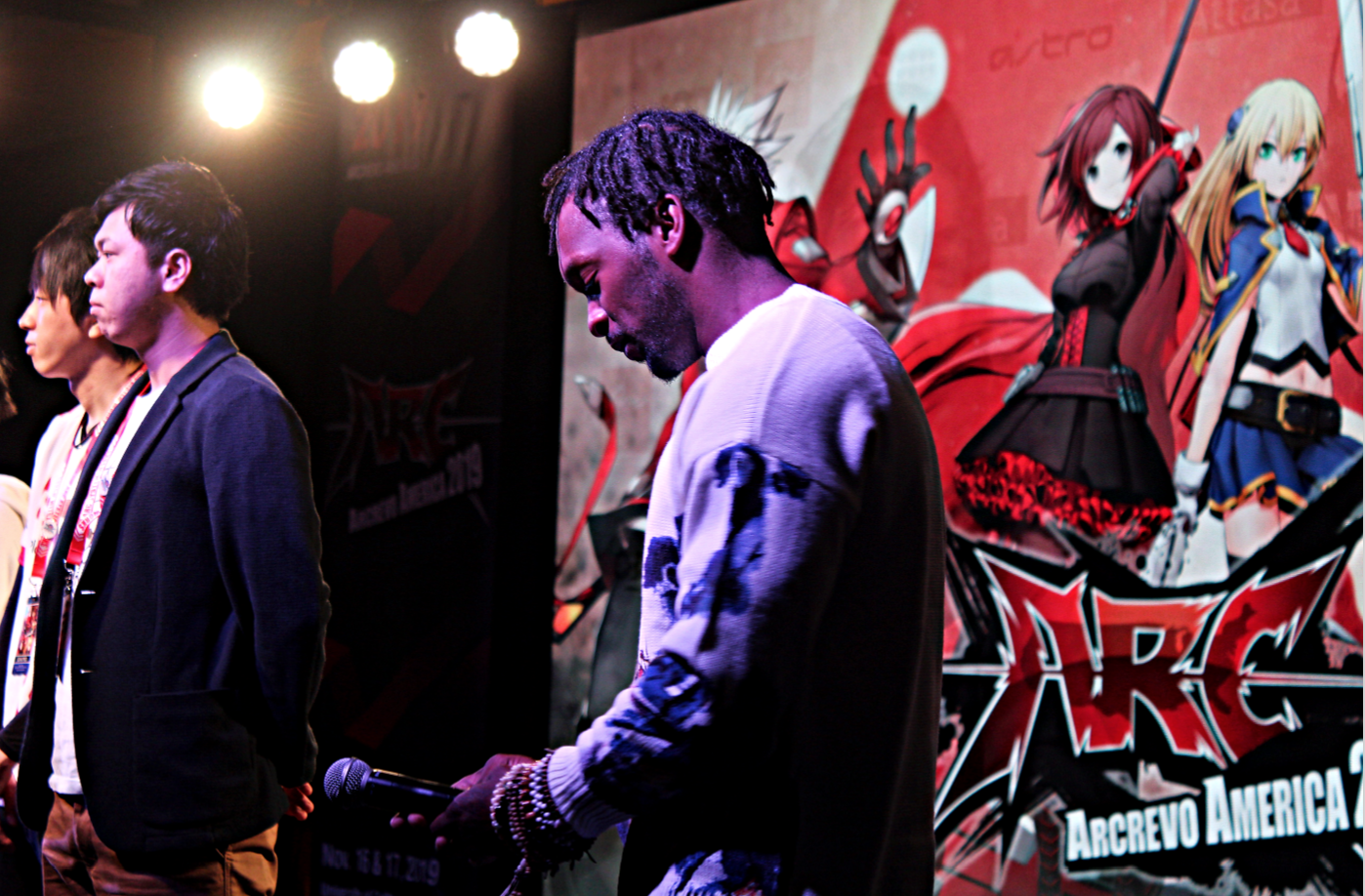
The Fighting Game Community is the black sheep of the developing competitive gaming industry, everpresent decades prior to the inception of esports mega-titles League of Legends. The FGC continues to thrive on a grassroots community that has been self-sufficient long before esports became the investment hotspot, and its narrative fabric has sewn together threads of so many different playerbases that the community has transcended any individual title in itself.
In this type of environment with multiple titles, independent levels of competition worldwide, and elite competitors battling it out in multiple games, the voices of the production and talent side of FGC tournament broadcasts serve as an ambassador to new fans, and a tether of familiarity for the scene's veterans that have seen many a game come and go.
Steve "Tasty Steve" Scott joined Inven Global's Nick Geracie at ArcRevo America 2019 to discuss the flexibility required to be a professional in the FGC, his lore-laden approach to casting, and how Dragon Ball FighterZ is creating a convergence of fighting game players on an entirely new level.
I'm here with Tasty Steve at ArcRevo America 2019, where you're hosting; casting; you're kind of doing it all here!
Yeah, I'm really enjoying it actually. This is kind of like where I dwell — I get to talk to people about what we're looking at in general as a host, and then I get to commentate on the side and show off my knowledge and love for the game that is Guilty Gear Xrd REV 2. In addition, I'm getting to bump elbows with the developers of the game. I was just eating in the same room as [Guilty Gear creator and Head Developer] Daisuke [Ishiwatari]...I'm kind of freaking out right now! laughs
As a fighting game commentator, you also have to stay up to date with multiple games. Do you think that flexibility creates familiarity throughout the FGC and creates more opportunity for crossover from one game's scene to another? If so, is this factored into your approach when casting?
I don't think it's about bringing people in from other fighting games because if you play fighting games, you're always going to have the capacity to branch off and try something else, right? I feel like the more that you experience it yourself, you should come to understand, and if you don't, then I'll talk to you about how this is an open-ended thing. For example, you and I met here, where right now, they're playing Guilty Gear, but I LOVE Tekken, and just the same, I love Street Fighter, too.
I can talk to you about all of these things in depth, but then still come on the mic and say, 'Hey people who are just tuning in, this is what you're looking at.' That's not necessarily me saying, 'Look at everything ELSE you could be looking at!' but moreso engaging specifically within the moment, especially when it comes to spreading knowledge and information.
Another game you cast a lot is Dragon Ball FighterZ, in which CYCLOPS athlete gaming's Shoji "Fenritti" Sho is a top competitor in addition to his elite level of competition in BlazBlue: Central Fiction and BlazBlue: Cross Tag Battle. DBFZ has created crossover between the Marvel scene and the anime fighter scene on a never before seen level. Is it the value of the Dragon Ball series IP in North America, or is it more related to the game itself?
I think it's a little bit of both. If you take a player like Evil Geniuses' Christopher "NYChrisG" Gonzalez, who in my opinion, is very much a top competitor in Dragon Ball FighterZ. ChrisG comes not only from Marvel and a general team game background, he comes with a background from all of the NetherRealm Studios games as well. If you take that into account, I definitely think being able to integrate multiple fighting styles is something DBFZ does best.
Of course, there's also the fact that yeah, it's definitely the strength of the IP. Who doesn't like Dragon Ball?! Personally, I feel like it's really hard to not like Dragon Ball, and don't get me wrong, there are people out there. I'm not talking to the fraction of people who don't like Dragon Ball; whatever amount that is — Dragon Ball is a universal unifier.
DBZ definitely does a great job of also attracting people who are like, 'Man, I don't care about about fighting games, but I for damn sure love Dragon Ball!' It's a good example of taking an IP that is not too standard to fighting games, and may not have had a game that appeals to the competitive FGC players. It's definitely the game I look to now, and even with all the patches and things they've changed since its release, I've only fallen more in love with the game.
It's been long enough that now the players are defining themselves. You mentioned Fenritti, who is competing here, and I talk about how often I talk about that guy.
I'm happy that I'm able to see him not only operate in his field, but it also puts a spotlight on just how hard of a game Dragon Ball FighterZ is. When you can put Fenritti up there with players like GO1 and SonicFox, that shows how mutually exclusive the elite level of crossover talent is in DBFZ.
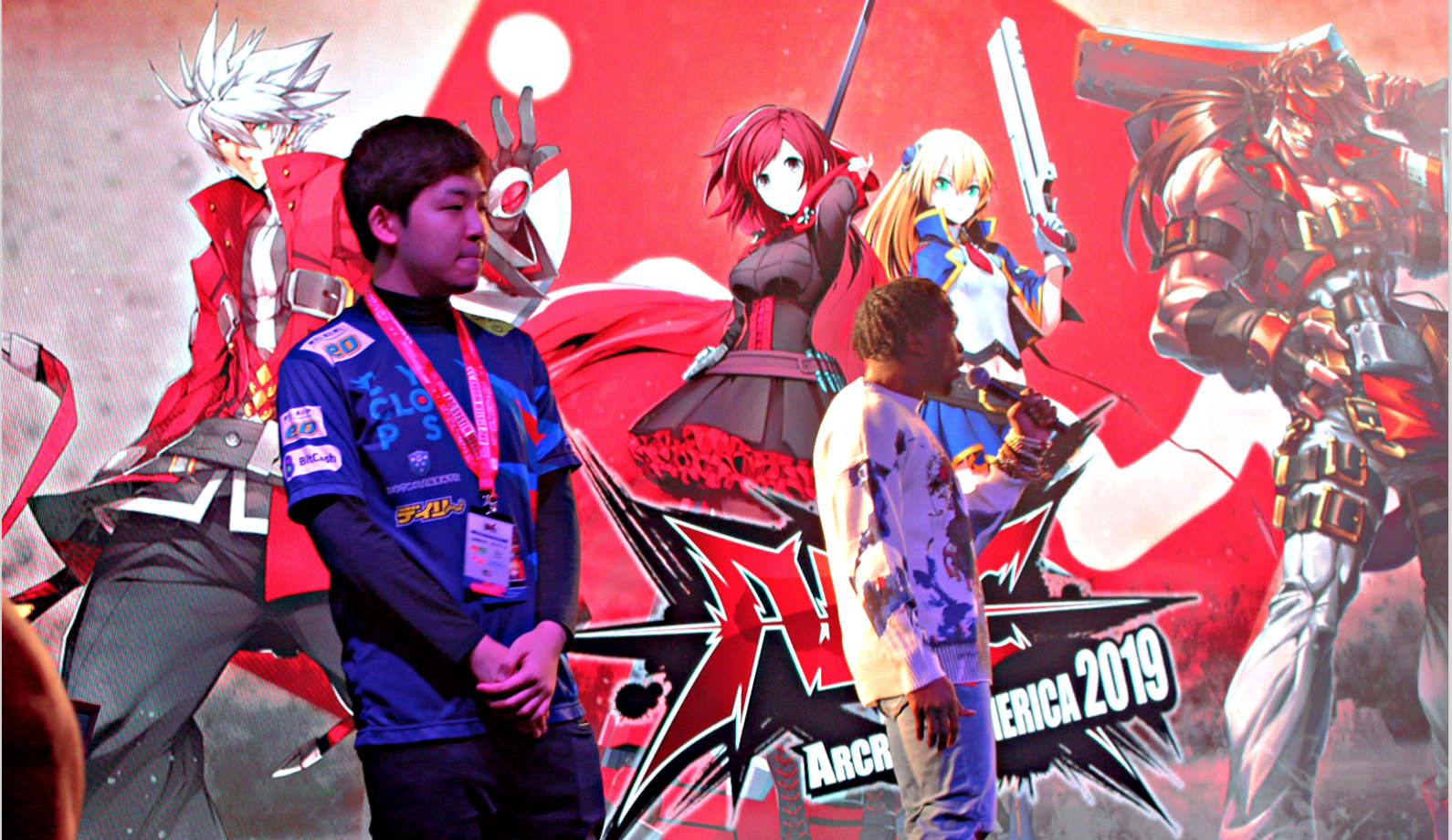
It's not just one of these factors that makes this level of crossover happen, it's literally a combination of all of these things that creates a chemical reaction that's happening in the FGC, and I personally love it. You get all these different players from all of these different backgrounds and they converge and it has resulted in some of the most exciting things I have ever seen. In addition, we're kind of void of a team game at the top level right now, so DBFZ scratches that itch as well.
If a player enjoys DBFZ but has not been introduced to other anime fighters, where should they start?
The thing about Dragon Ball being such a unifying IP is that you can go in so many different directions from there. It depends on what you're introduced to by who you meet, or what you end up enjoying about DBFZ, but you can do whatever you want. Personally, I don't feel like there's going to be too many communities who turn a new player away and tell them go to go somewhere else.
I feel like it's all an open table — if you started off with DBFZ and you like a personally-integrated IP, BlazBlue is a good route to go in terms of trying a new game. It's a little more complicated than DBFZ, but when it comes to characters having special abilities, archetypes, and even attitudes, BlazBlue is a good place to start in that context when taking all of that into account. It's a little more complicated to some, but it's definitely a good place to start.
There are also games like Persona 5 Royal, which hasn't had a recent update, but is on the easier side. The Persona series uses popular characters, and since the IP originates from a different genre, that brings other people into the FGC too, so if you still want to hang around the outer rim of the community, that's a good place.
Then, you have games like the Guilty Gear series which is super rich in history, character depth, and combos. There's so many ways you can go, but if I told someone they had to start somewhere, those would be my examples.
Because of the crossover in the FGC, these players' storylines can be formed over decades, and there's a lot to draw from there as a caster. However, something you do in your casting of DBFZ is to invoke your knowledge of the Dragon Ball lore to magnify the intensity of a moment in a match. Is that type of immersive theatrics something you had to develop and study, or are you just a Dragon Ball superfan?
What a lot of people don't know is that I have a book that I made in high school with all of the lore from the start of Dragon Ball to the end of Dragon Ball Z. It had synopses of the stories, it had a cover and back that I drew myself. If you look on my Instagram, there are pictures of Dragon Ball art that I've drawn by hand, and those are the bookends of the Dragon Ball series lore book that I created.
This isn't something that I need to study — I studied this before most of these people even knew what the **** a fighting game was! I don't have to study lore a lot of the time, it's always there for me to call on it, and I call on it often enough to where I don't forget.
Don't get me wrong; I definitely forget details sometimes, because I'm getting old. However, for the most part, I can tie anything I talk about back to the lore or an origin story. That's just me — I'm one of those dudes who is deep in the lore of anything I talk about. I don't know as much about the technical aspect, but when it comes to the little aesthetics and the lore behind them, I want it all. I tell people all the time that I'm a host, analyst, commentator, consultant, and a fan. *laughs*

Thanks so much for your time, is there anything you want to say to fans and members of the FGC?
Thanks for the support. In all honesty, I appreciate the people that continue to support me, the people who read this, and you for wanting to talk to me more than anything. I appreciate every ounce of that because I really do understand that without the people who support me I wouldn't be here, so I do appreciate it.
Sort by:
Comments :0


